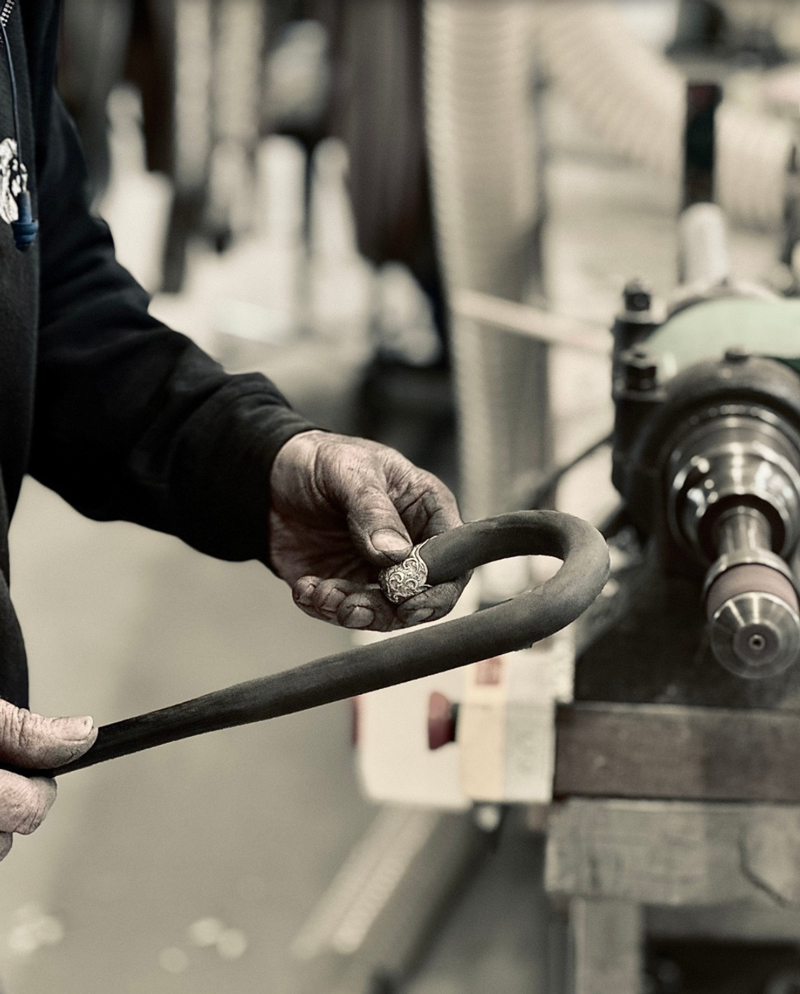The fayet canes for "Le secret des conteuses" (The secret of the storytellers)
For the creation of the play "Le secret des conteuses", Fayet produced authentic canes to accompany the actresses in their performance, offering a quality accessory.

Fayet-Rousseau was founded in 1909 in Thiers, initially located in rue Chateldon and avenue des Etats-Unis. Specialising in the manufacture of handles for umbrellas, parasols and walking sticks, it used materials such as horn and galalith, carved or turned. In 1927, the company acquired Sol-Guérin, expanding its production to include cane bending. For around ten years, the two factories operated simultaneously, with the head office remaining in Thiers.
At the Mignot factory, Fayet-Rousseau controls all stages of cane production, from raw material sourcing to the finished product. The raw materials are purchased from merchants and wholesalers such as Maison Charles in Le Havre for exotic woods and merchants in the Allier region for hornbeam and beech. The wood is stored, dried and cut by sawyers using band and circular saws.
One of the company's specialities is the 'injected' model, a technique inherited from Sol-Guérin, in which wooden squares, mainly hornbeam, are impregnated with aniline dye under pressure. This method hardens and protects the wood, and these models are mainly sold in Great Britain, North America and Holland. Each worker in the factory has a specific speciality, such as sawyer, grater, bender, sander, varnisher, sealer, shaper, router and engraver. A significant proportion of employees are women, consistently accounting for a third of the workforce.
While today's Fayet canes are resolutely modern and in tune with the times, the manufacturing techniques have changed little. Fayet walking sticks are made in the company's workshops using age-old know-how handed down from generation to generation.
